Proactively restore production
The impact of storm No. 11 and African swine fever has caused severe damage to the livestock industry. Tens of thousands of livestock and poultry were swept away or died, many farming areas were destroyed, making people worried about the ability to meet food needs at the end of the year. According to preliminary statistics, the total damage in the province is estimated at about 2,893 billion VND. In the livestock sector alone, more than 13,000 livestock and about 920,000 poultry died.
|
Dabaco Vietnam Group Joint Stock Company prepares pigs to supply the market for the Lunar New Year 2026. |
Faced with this situation, the Department of Agriculture has directed localities to focus on two parallel tasks: Restoring production after natural disasters and epidemics and promoting herd restoration to proactively source supplies. Models of raising many types of livestock to diversify products are also encouraged to reduce risks.
As a long-standing livestock farm in Tram Lo ward, Mr. Nguyen Van Du's family proactively prevents and fights epidemics, performs quarantine and vaccination well to ensure the time of selling pigs to serve the market during the Lunar New Year. Mr. Du shared that to ensure healthy pigs, the family only uses breeds from local sows, strictly implements vaccination procedures and cleans the barn. At the same time, closely monitors market developments to balance the quantity, avoid massive re-herding, and ensure smooth consumption.
At Mr. Do Danh Hai's farm (Yen The commune), immediately after the heavy damage from the floods caused by storm No. 11, tasks such as cleaning the barns, periodically spraying disinfectants, repairing the electricity and water systems, dredging drainage, and reinforcing the roofs were urgently deployed to restore the chicken flock with the desire to promptly supply the market during Tet. Mr. Hai shared that during Tet, the market demand for poultry, mainly chickens, is very high. Especially the crossbred fighting chickens and free-range chickens, which have long been planned by the local authorities and people for raising in association with brand building and have been recognized as 4-star OCOP products. Therefore, as soon as cleaning and arranging the barns after the storm and flood, his family disinfected and brought in 20-day-old chickens. It is expected that after about 90-100 days, they can be sold. However, the family still hopes to receive additional support from the government with capital, breeds and technical guidance to ensure biosafety.
Yen The commune currently has nearly 100 large-scale poultry farming households, of which 60-70% suffered damage after the recent floods. As soon as the water receded, the commune authorities mobilized forces to collect and destroy dead poultry, disinfect the entire farming area, and count the damage to propose support for the people.
Basically meet market needs
According to forecasts, the demand for livestock products during the Lunar New Year will increase by 10-30% compared to normal days. Currently, the total pig herd in the province is more than 1.145 million; the poultry herd is about 26 million; the buffalo and cow herd is more than 147,500; the commercial fish output in 2025 is estimated at 99,700 tons. Although it has decreased compared to the previous year, the agricultural sector believes that the food supply at the end of the year will still basically meet the market demand.
A representative of the Department of Agriculture and Environment said that the province has asked localities to proactively allocate resources, support livestock households in restoring their barns, provide materials, disinfectants and technical guidance to stabilize production as soon as possible. The goal is to avoid disruption of food supply before, during and after Tet. Herd restoration must go hand in hand with disease control and biosecurity.
In addition to restoring production, the province also requires businesses and cooperatives to proactively develop purchasing, slaughtering and distribution plans to avoid sudden price increases or local shortages. Some large businesses have prepared reserves to supply supermarket systems, wholesale markets and retail outlets in residential areas and industrial parks.
Many livestock farmers believe that this year's market may shift towards increased consumption of chicken, beef and fish due to reduced pork supply. This is an opportunity for farms to expand production and diversify products according to consumer demand. To ensure product quality, the agricultural sector has increased inspection and supervision of the transportation, slaughter and trading of livestock and poultry, especially at traditional markets. Animal quarantine and slaughter control have been tightened to ensure food safety. At the same time, livestock farmers are advised to closely monitor the market, forecast consumption to determine appropriate herd restoration scale; use breeds of clear origin; maintain hygiene and disinfection; prevent disease with vaccines and supplement nutrition to increase resistance.
With the efforts of localities, professional agencies and breeders, it is expected that food supply during Tet will be guaranteed, contributing to stabilizing the market and serving people's needs well.
Duong Hoan
Source: https://baobacninhtv.vn/bac-ninh-chu-dong-tai-dan-bao-dam-nguon-cung-thuc-pham-dip-tet-postid431447.bbg


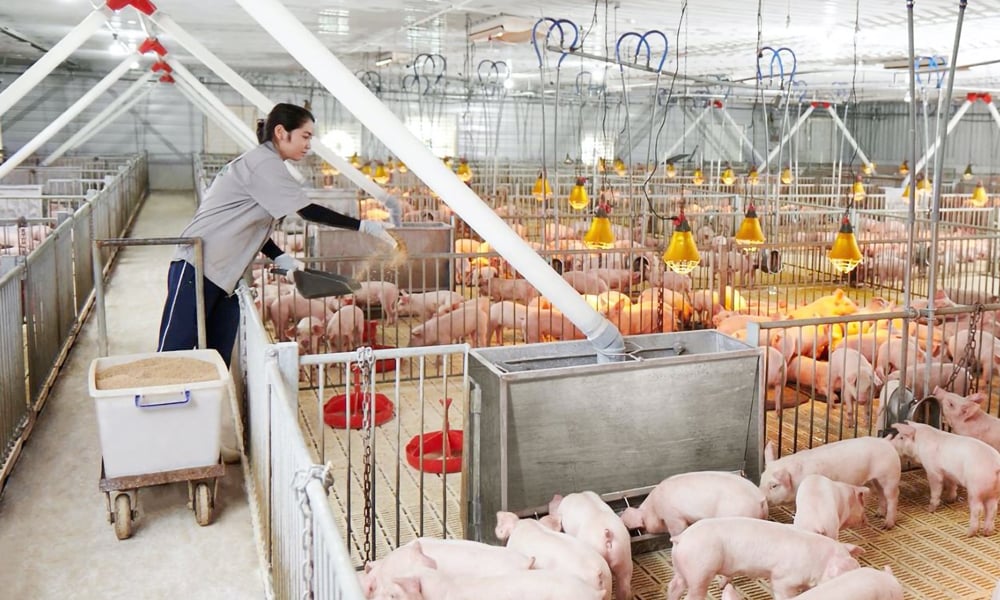

![[Photo] General Secretary To Lam receives President of the Senate of the Czech Republic Milos Vystrcil](/_next/image?url=https%3A%2F%2Fvphoto.vietnam.vn%2Fthumb%2F1200x675%2Fvietnam%2Fresource%2FIMAGE%2F2025%2F11%2F21%2F1763723946294_ndo_br_1-8401-jpg.webp&w=3840&q=75)
![[Photo] President Luong Cuong receives Speaker of the Korean National Assembly Woo Won Shik](/_next/image?url=https%3A%2F%2Fvphoto.vietnam.vn%2Fthumb%2F1200x675%2Fvietnam%2Fresource%2FIMAGE%2F2025%2F11%2F21%2F1763720046458_ndo_br_1-jpg.webp&w=3840&q=75)
![[Photo] Visit Hung Yen to admire the "wooden masterpiece" pagoda in the heart of the Northern Delta](/_next/image?url=https%3A%2F%2Fvphoto.vietnam.vn%2Fthumb%2F1200x675%2Fvietnam%2Fresource%2FIMAGE%2F2025%2F11%2F21%2F1763716446000_a1-bnd-8471-1769-jpg.webp&w=3840&q=75)

![[Photo] National Assembly Chairman Tran Thanh Man holds talks with President of the Senate of the Czech Republic Milos Vystrcil](/_next/image?url=https%3A%2F%2Fvphoto.vietnam.vn%2Fthumb%2F1200x675%2Fvietnam%2Fresource%2FIMAGE%2F2025%2F11%2F21%2F1763715853195_ndo_br_bnd-6440-jpg.webp&w=3840&q=75)






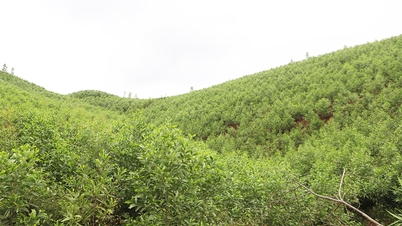




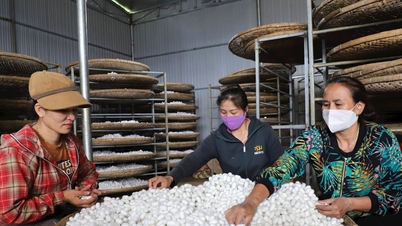

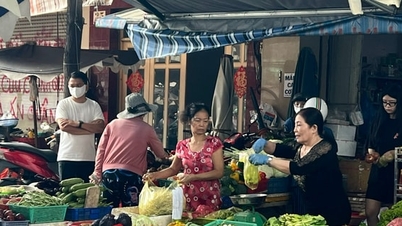














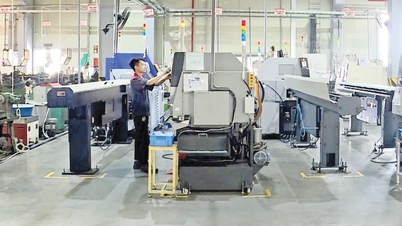












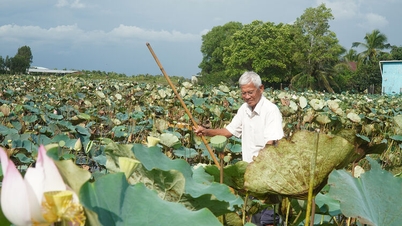



































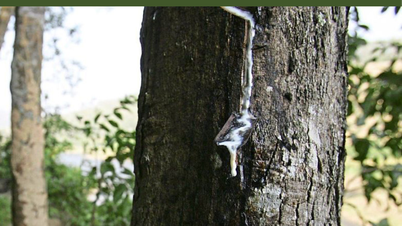




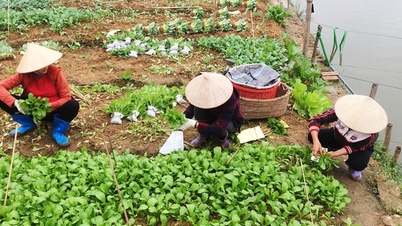






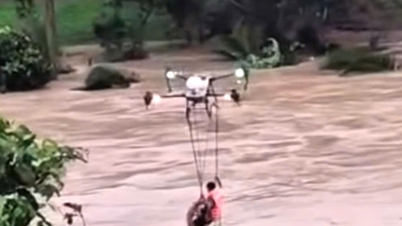















Comment (0)